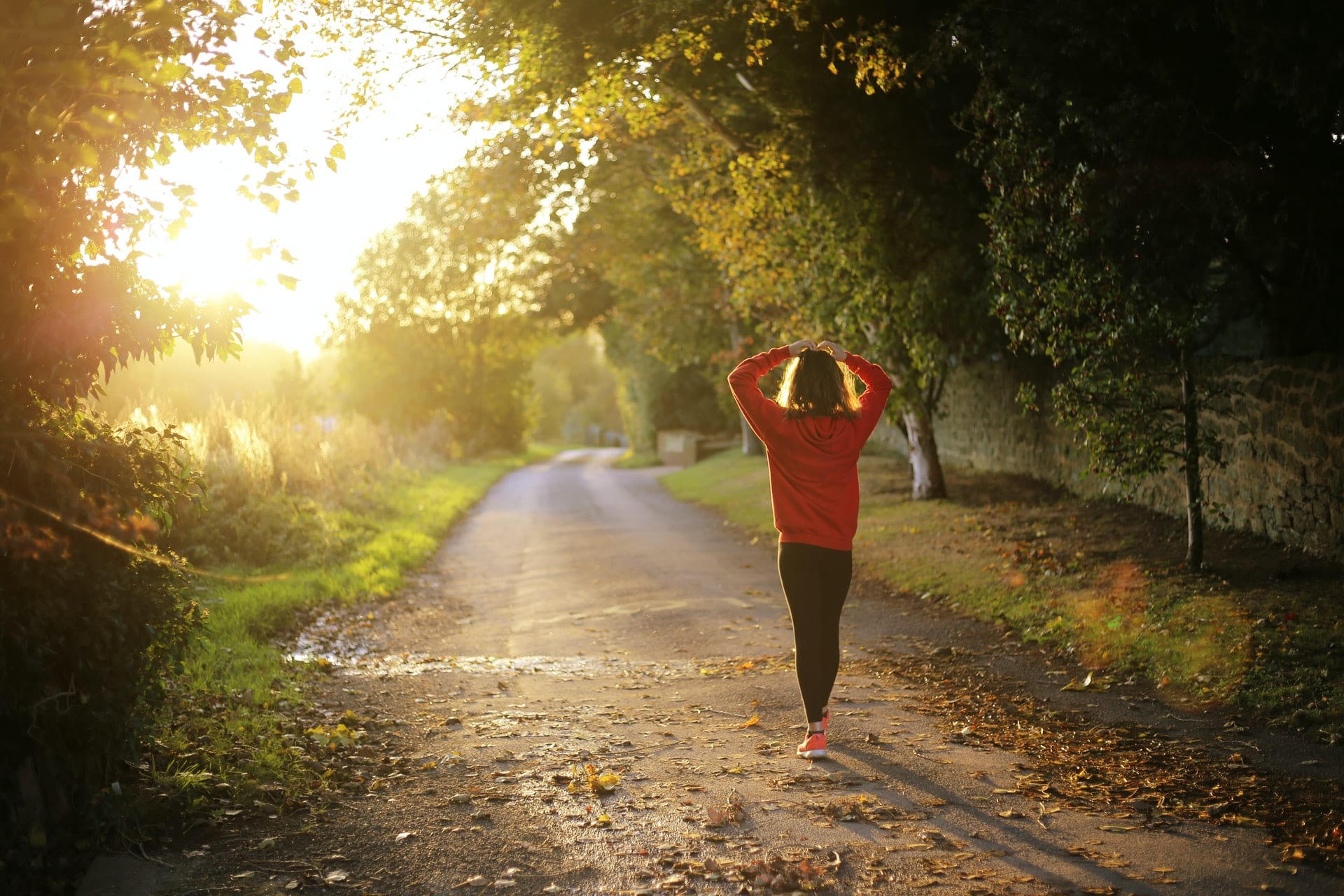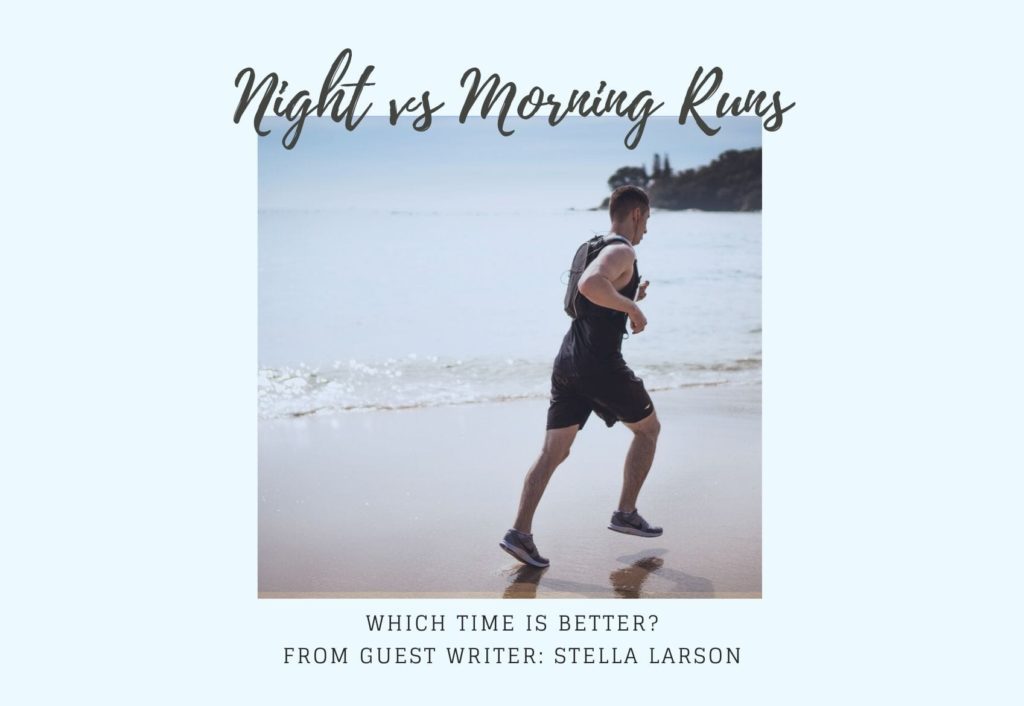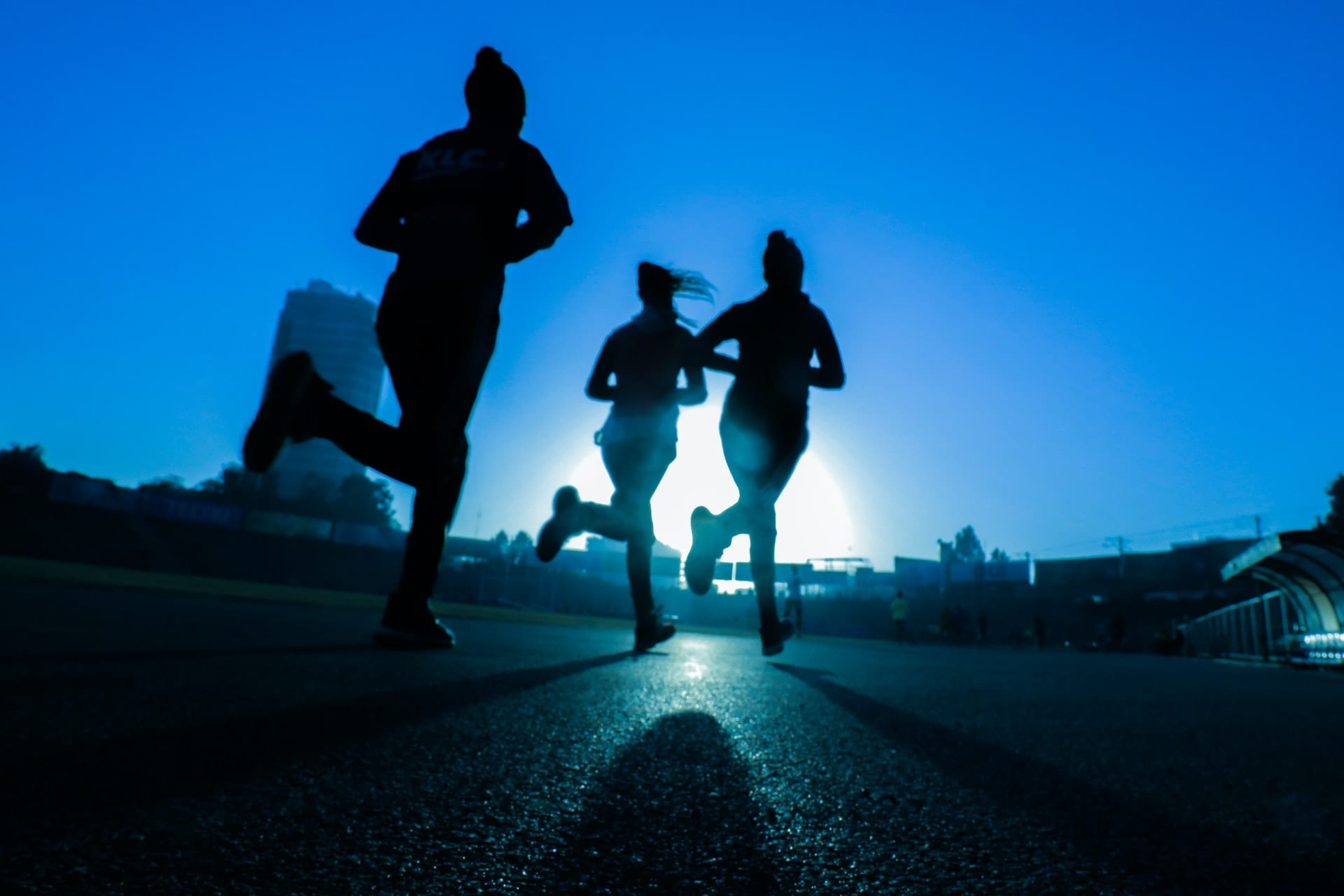Trying to establish a running routine can be hard, and finding the time of day that works best for you even harder. As runners, we are always looking to optimise our runs, from the clothing we wear to the speed, distance, and time of our runs.
When it comes to our running schedule, factors such as stress, work, nutrition, sleep, and mental health all influence our biorhythms. This means that it is hard to strictly point out which time is best for running since it varies from one individual to the other. However, some generalisations can be made based on scientific research. Here are some of the pros and cons of running in the morning and night, so you are more informed on how they can affect your runs.
Pros of Running in the Morning
Most people associate the first hours of the day with productivity and good habits. But does that apply to running and exercising as well? Let’s see some of the benefits of making use of the morning to check that run off your to-do list.
Energising start of the day
Setting the alarm a little bit earlier and getting a run in before you continue with your daily tasks can be an energising way to start the day. An early run is an early accomplishment, which will help you feel eager to take on whatever the rest of the day has in store for you.
Improves consistency
Morning runs have their advantages when it comes to creating routines and habits. It is much more likely to wake up earlier to run rather than running in the evening when your daily chores and tasks may pile up or you don’t have the energy. Mornings are a fresh start, which can be more motivating for starting your days off with a run too.
Helps with weight loss
Running for weight loss is not necessarily tied to a specific time of the day. However, some studies have suggested that morning exercise, especially in a fasted state, may help to control your energy intake. These types of runs can be particularly helpful for fat loss since the body starts burning up fat for energy when carbs and proteins from food are absent.
Cons of Running in the Morning
Running in the morning is not everyone’s cup of tea, as well as there can be some disadvantages to it. Here are some of the challenges that come with running early during the day:
Not optimal for more challenging runs
When you wake up, your body needs time to gradually regain its energy. If you train hard in the morning, there is a higher risk of overexertion. This time of the day is not optimal for interval training or long-distance runs, therefore save the mornings for lighter runs.
More prone to injuries
Just as the body is not ready for high-intensity runs, its cooled-down temperature after sleep can increase the risk of injuries. Muscles are less flexible and joints are stiffer upon waking up, so they need to be properly warmed up before running. Therefore, when going for a run at this time of the day, make sure to include a longer warm-up routine in order to avoid injuries.
Subject to time limitations
If you aren’t a natural early riser, making the time for a run can be difficult, especially if you have to be at work after it. During winter, as well, it can be harder to wake up when it is still dark outside. Morning runs can be a challenge when it comes to time since you will have to follow a strict routine time-wise, so you can shower or prepare for the rest of the day without being late.
Pros of Running at Night
When the sun sets and the evening approaches, some runners lace up their shoes and hit the road for their daily runs. Many will prefer running at night, but are there proven benefits of running during this time of the day? Let us break down some of the pros of night running first.
Better performance
The rhythm of the physiological and biochemical processes behind running is an important part of the way we adjust to exercise during a certain time of day. Body temperature, for example, is at its peak during the early evening. Studies have found that running during this time of the day has shown better performances in athletes. Therefore, if you like to add intensity to your runs, running at night is best suited for increasing your speed and distance.
More time to recover
As opposed to having to move on with the rest of the day after a morning run, running at night most likely means you have finished your daily tasks and can properly recover after it. After these runs, you will probably have more time to cool down and shower. Resting is also more convenient after a night run since it is closer to the time when you sleep.
Stress relieving
Among other health benefits, running is the perfect activity for relieving the build-up stress of the day. Running at night can be a helpful medium for blowing off steam and having some time to yourself after a long day of work.
Cons of Running at Night
While running at night proves quite effective for making use of the body’s optimal conditions, this time of the day can also have its disadvantages:
Less safe
Depending on the route and its conditions, running at night can lack safety compared to running in the morning when everything is in clear sight. Running in remote and dimly lit areas can pose safety concerns for runners since both their vision and oncoming drivers’ vision is less clear. These conditions can also make it challenging to spot possible obstacles such as potholes or branches along the way, which can be a cause for injury.
Harder to find motivation
You are home after a long day, you’re tired, and the last thing you feel like doing is engaging in physical activity. This is pretty common with many runners since nighttime is mostly seen as a time for rest and leisure. Due to this, it can be harder to stay motivated and to create a consistent routine.
Conclusion
These were some of the pros and cons of running during the morning and at night. Each of these can vary depending on runners’ preferences and their unique physiology and biomechanics. Studies will generalise on some of the benefits of running for weight loss in the morning or running at night for performance, however, ultimately, the best time for a run is when it suits you and you can commit to it
Thank you to Stella Larson for the article
Stella Larson is a Content Marketing Specialist at The Running Insider. Apart from coming up with marketing strategies, she is passionate about writing topics that involve health, running, and all other kinds of activities.



